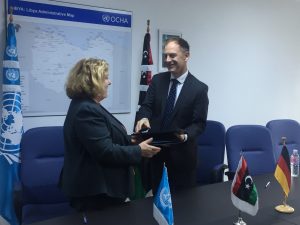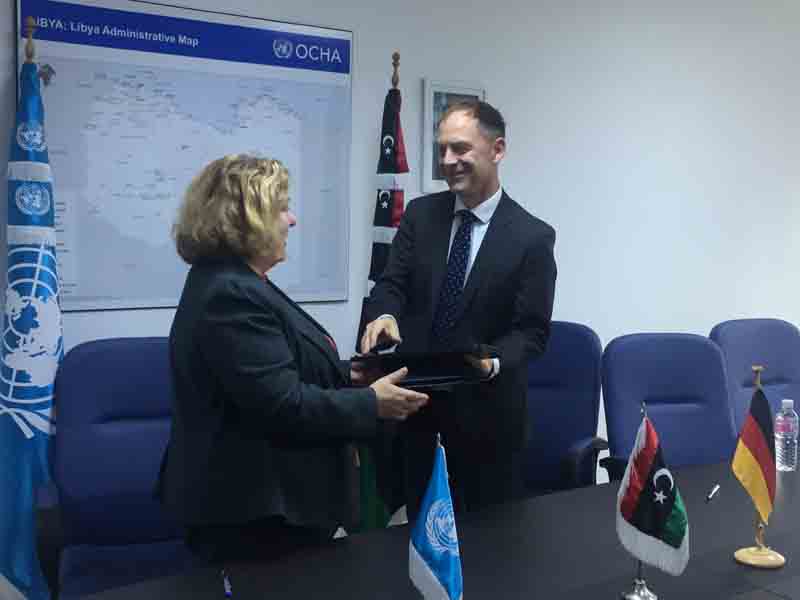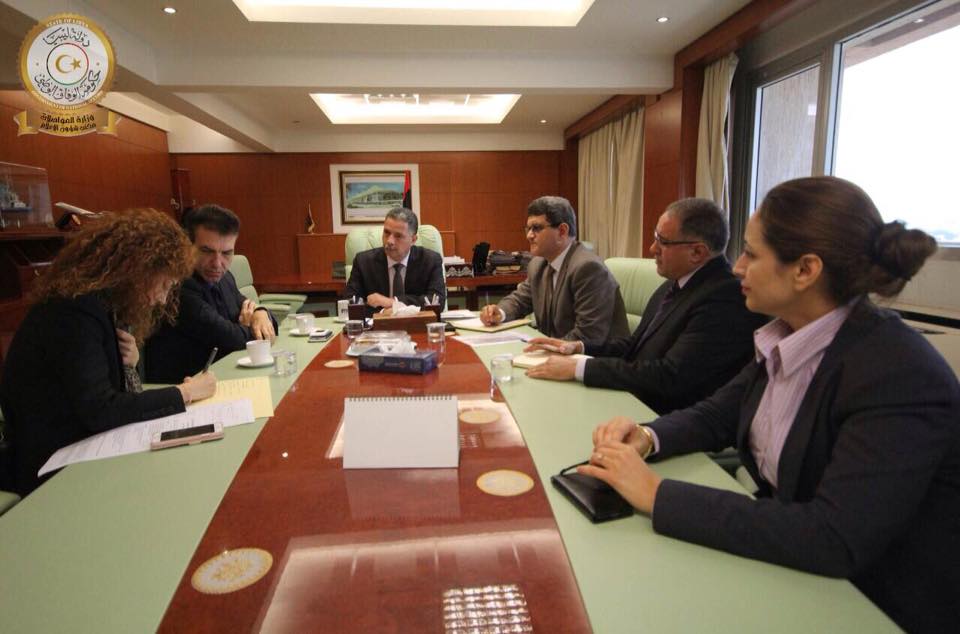By Libya Herald reporter.

Tunis, 30 November 2017:
Germany has given another €1 million to the Libya Stabilisation Facility. The donation means that the facility has gathered almost all its $40-million target. The figure is now standing at $39.6 million.
A ceremony this afternoon to hand over the €1 million, held this afternoon at the UN Development Programme (UNDP) Libya office in Tunis, saw German Ambassador Christian Buck and UNDP Libya head Maria do Valle Ribeiro sign and exchange agreements on the donation.
Ribeiro is also the deputy UN special envoy to Libya.
Germany was already the largest contributor to the facility. This latest donation brings its contributions to almost $12m. This compares to $5.6 from the EU, $4m from the US, $2.9m from the UK, and $2.2 each from Italy, Norway and The Netherlands. France has given $2.1m and South Korea $2m.
A further $14m, however, is promised, which will enable the facility to do more than it had originally planned. Of this, $7m is also from the EU. Of the other $7 million, the Presidency Council government has said it will give $5m and Qatar $2m. These have yet to appear.
A proportion of the funding gathered so far has already been spent, or is being spent, on projects in Benghazi, Kikla, Ubari, Sebha and Sirte. Work is about to begin on projects in Bani Walid. These include helping refurbish and re-equip the hospital; supporting water, sanitation and street cleaning services; and refurbishment and maintenance works at four schools. The latter will include the supply of computer classrooms and science laboratories.
An assessment is also in progress with the ministry of planning about needs in the greater Tripoli area.
Thanking Germany for its increased contribution today, Ribeiro said that the facility was making a real difference to people’s lives.
“Libyans are struggling to keep electricity on. Not only families spend long hours in the dark at home, but also schools and hospitals face power interruptions, even during critical surgical operations. The Facility has fixed up power stations and installed solar panel in health facilities in various locations in the country. Now there are hospitals and clinics that can keep refrigerating medicines, attending patients and performing surgery with no power cuts. After SFL rehabilitations, children are back to school. The new ambulances provided by the Stabilization Facility are saving lives. All of this is possible, thanks to the support of countries like Germany.”
Responding, Buck said that Germany had increased its contribution because the facility was achieving tangible results.
He added: “The idea is not only to help the people of Libya, but also help the government of Libya to help the Libyan people.”









